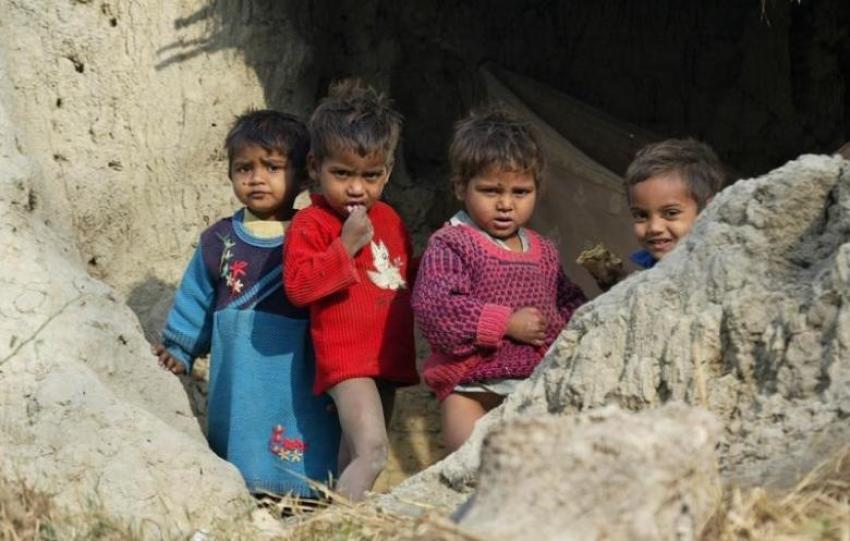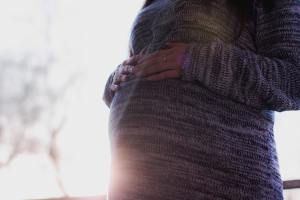How churches can learn from past viral crisis in responding to vulnerable children

As coronavirus spreads across the world, many are warning of the potential catastrophic consequences in poor countries with little infrastructure and few resources.
Recent media reports from India have highlighted the challenges for the nearly 1 billion adults and children living in overcrowded slums and more attention on developing countries are expected to increase in coming weeks. World Vision recently released a report showing, “Secondary impacts will threaten many more children’s lives than COVID-19 itself.” Major funders, such as the World Bank and U.S. government, are now providing billions to help developing countries.
Children in these settings are particularly vulnerable due to their reliance on caregivers and other community systems that provide for their care and protection. While data suggests children are often spared from the most severe physical symptoms of the coronavirus, vulnerable children around the globe will experience devastating impacts.
The burden of the virus on their families and communities will significantly increase the number of children who are at risk of being placed into orphanages or forced onto the street, as families and caregivers try to survive in extreme poverty and illness, and, sadly, with loss of lives.
Lessons from past infectious disease outbreaks have taught us to not forget the children in low-income countries, specifically recognizing the importance of supporting families to care well for their children during and after a crisis.
Lessons learned from HIV/AIDS
HIV/AIDS remains one of the world’s most serious health and development challenges ever since the first cases were reported in 1981, with 32 million deaths globally.
When American Christians responded with empathy and generosity during the epidemic and the resulting “orphan crisis,” they focused funding on the building of orphanages throughout Africa. One 2004 study reflected on the previous 10 years of response to the epidemic in Zimbabwe, and it found a doubling in the number of registered orphanages (we know many more were likely not legally registered) and that 85 percent of the funding for those orphanages came from faith-based sources.
The problem is that decades of academic research shows that children develop best in families, as compared to orphanages or children’s homes. Sadly, most donors and volunteers were not aware of the negative impact orphanages have on children.
A similar story is told in the response to the 2014 Ebola outbreak in West Africa where over 11,000 deaths occurred. The same public health methods were used in the Ebola outbreak as the COVID-19 response, including social distancing and quarantine. As the death count rose and communities shunned the sick, children were orphaned or separated from family, even extended family.
Recognizing the impact Ebola was having on children, the Liberian government created guidelines to build on a strong framework for supporting family care, stating the priority of keeping children with their families, extended families, and communities. And when that was not possible foster care should be prioritized over orphanages. Despite these efforts, the number of orphanages increased.
There is an urgency for Christians to learn from these past lessons and focus efforts on proactively supporting families in crisis now so that the COVID-19 pandemic will not unnecessarily separate children from their families. Efforts to enable families to withstand shocks and manage stressors, as well as the use of alternative family care options when needed such as emergency foster care, are effective for responding to immediate needs of children.
This is important to recognize now because the response of American Christians to the current pandemic could threaten the progress that has been made to support children being cared for in safe and loving families instead of orphanages.
Orphan care progress threatened
Outside of these crises, there has been a growing movement to reform the care given to international orphans and vulnerable children.
Last December, the United Nations General Assembly (UNGA) expanded that movement by issuing the 2019 UNGA Resolution on the Rights of the Child urging countries to transition away from residential care such as orphanages and invest in family care. At the same time, Christian organizations who have supported family care for years are coming together like never before to support children in families.
Recently, World Vision, Catholic Relief Services, Bethany Christian Services, World Without Orphans, Christian Alliance for Orphans, and 17 others signed The Global Church Pledge to See Children Thrive in Safe and Loving Families committing to “support efforts which strengthen families, invest in family-based solutions, and combat the root causes of their vulnerability.”
The outbreak of COVID-19 threatens that progress. If we respond again by building more orphanages instead of supporting struggling families and creating foster and adoption programs, we will negate the progress toward ensuring children receive care within families.
What can we do?
The American church must pray for the slow of this virus in the most impoverished communities in the world, asking God to protect and preserve families so they can care well for their children.
We must also channel our funding toward critical needs to protect children and support families and support current efforts to prevent the spread of COVID-19 among vulnerable families and children and provide health care to the sick. It is imperative that we support social workers, teachers, pastors and other community members who can monitor families and children during this time of crisis. With global estimates showing 80 percent of children living in orphanages have a living family member, governments in Kenya and India are already mandating that orphanages return children to family members.
This means orphanages need help scaling up their monitoring of those children and supporting families to make sure they can safely care for their children through social work visits and casework so that children won’t be returned to an orphanage after this crisis subsides. Lastly, we need to support efforts that will address the mounting challenges families are beginning to face, including the loss of caregivers and severe economic hardship, including:
- Supporting organizations who are sustaining families in extreme poverty and families who have lost family members that care for their children.
- Supporting efforts to build alternative family care options such as in-country foster care or adoption.
- Supporting existing orphanages that are shifting to a family-care model.
- Supporting training and hiring social workers, as this is a growing area in need of assistance.
Finally, we can all raise awareness of the needs of vulnerable children and orphans to not only be safe, but to be safe in families. The Faith to Action Initiative facilitates a program that can help you learn and share about the needs of vulnerable children during and after this pandemic.
The American church has always given sacrificially to the most vulnerable. Despite the challenges we are all facing, now is an important time to prioritize vulnerable children and families, remembering the lessons we have learned, and giving generously to ensure children around the world receive the love, protection, and belonging they deserve, in a family.
Elli Oswald is the executive director of the Faith to Action Initiative, a coalition of organizations focused on promoting best practices in care for orphans and vulnerable children.



























